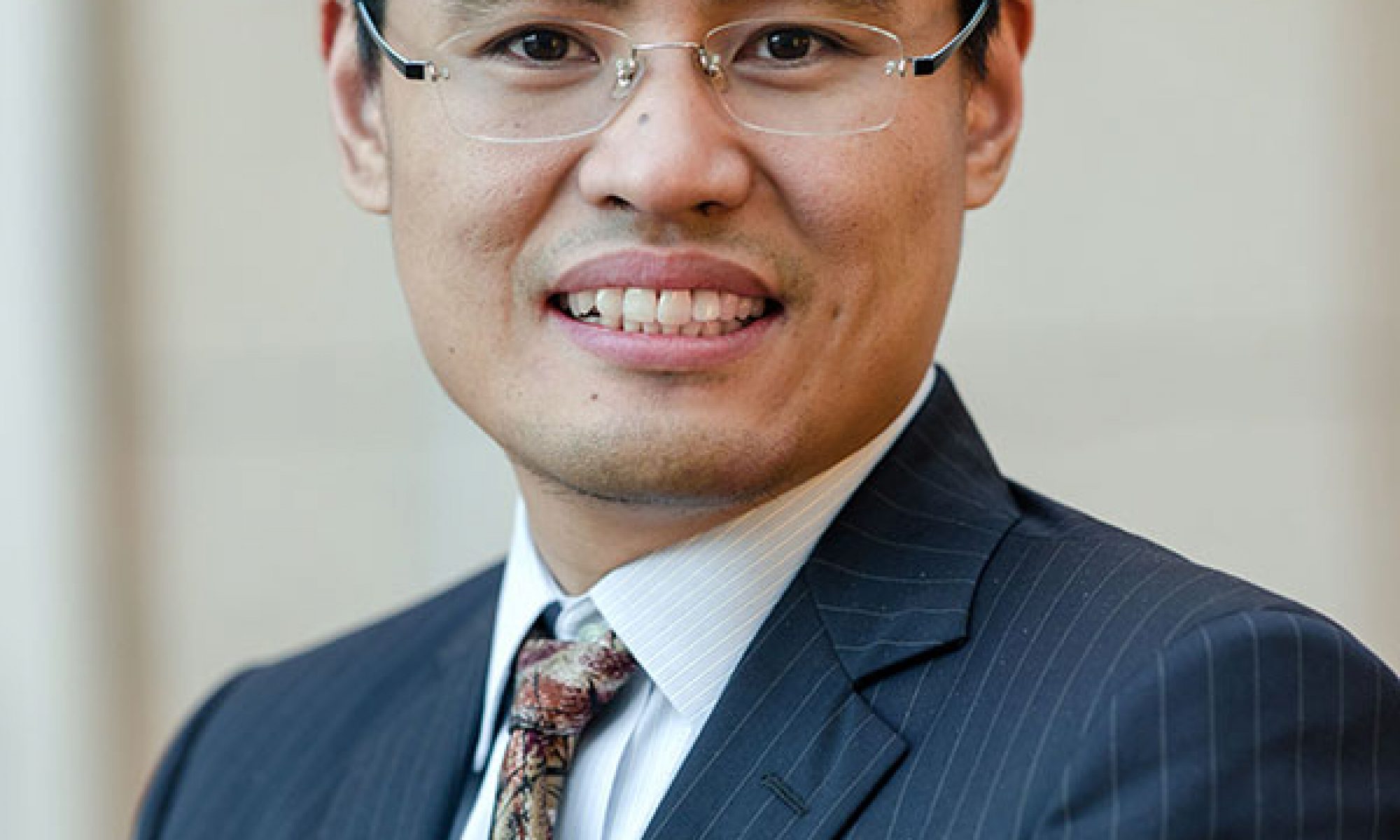|
Date
|
Speaker Name
|
Speaker Affiliation
|
Field
|
Topic
|
|
2019/5/28
|
Fenghua Song
|
Pennsylvania State University
|
Finance
|
TBC
|
|
2019/5/14
|
Michael Schwert
|
The Wharton School,
University of Pennsylvania
|
Finance
|
The Effects of Transparency on Trading Profits and Price Informativeness: Evidence from Corporate Bonds
|
|
2019/5/7
|
Ye Li
|
The Ohio State University Fisher College of Business
|
Finance
|
Tokenomics: Dynamic Adoption and Valuation
|
|
2019/4/23
|
Xiaomeng Lu
|
SAIF
|
Finance
|
Bubble-Creating Stock Market Attacks: Evidence from China
|
|
2019/4/23
|
Xiaomeng Lu
|
SAIF
|
Finance
|
Bubble-Creating Stock Market Attacks: Evidence from China
|
|
2019/4/16
|
Martin Oehmke
|
London School of Economics
|
Finance
|
The Tragedy of Complexity
|
|
2019/4/9
|
Ryan Israelsen
|
Broad College of Business, Michigan State University
|
Finance
|
Information Consumption and Asset Pricing
|
|
2019/3/26
|
Allaudeen Hameed
|
NUS
|
Finance
|
Option Volume and Anomalies
|
|
2019/3/19
|
Boris Nikolov
|
University of Lausanne
|
Finance
|
The Sources of Financing Constraints
|
|
2019/3/5
|
Grace Hu
|
University of Hong Kong
|
Finance
|
Premium for Heightened Uncertainty: Solving the FOMC Puzzle
|
|
2019/2/26
|
Shaojun Zhang
|
The Ohio State University
|
Finance
|
Limited Risk Sharing and International Equity Returns
|
|
2019/1/14
|
Su Wang
|
London School of Economics and Political Science
|
Finance
|
Young Firm Manager Turnover and Performance
|
|
2019/1/11
|
Siyu Lu
|
Carnegie Mellon University
|
Finance
|
The Efficiency Effects of Information Quality in Failed-Bank Auctions
|
|
2019/1/11
|
Yingguang Zhang
|
University of Southern California
|
Finance
|
Delayed Alpha: The Term Structure of Earnings Expectations and the Cross Section of Stock Returns
|
|
2019/1/10
|
Linghang Zeng
|
Georgia Institute of Technology
|
Finance
|
Impact of Venture Capital Flows on Incumbent Firms: Evidence from 70 Million Workers
|
|
2018/12/18
|
Alexander Michaelides
|
Imperial College Business School
|
Finance
|
Tactical Target Date Funds
|
|
2018/12/11
|
Yuehua Tang
|
Warrington College of Business
University of Florida
|
Finance
|
Prime (Information) Brokerage
|
|
2018/12/04
|
Baolian Wang
|
Warrington College of Business, University of Florida
|
Finance
|
Cryptocurrency Pump-and-Dump Schemes
|
|
2018/11/27
|
Neal Stoughton
|
WU Vienna University of Economics and Business
|
Finance
|
Discretionary NAVs
|
|
2018/11/20
|
Wenhao Yang
|
University of South Carolina, Darla Moore School of Business
|
Finance
|
Costly Information Acquisition in Decentralized Markets: Experimental Evidence
|
|
2018/11/13
|
Hongjun Yan
|
DePaul University
|
Finance
|
Global Perspective or Local Knowledge: The Macro-information in the Sovereign CDS Market
|
|
2018/11/06
|
Robert M. Anderson
|
University of California, Berkeley
|
Finance
|
Predicting Portfolio Return Volatility at Medium Horizons
|
|
2018/10/23
|
Bohui Zhang
|
The Chinese University of Hong Kong
|
Finance
|
Temperature and Productivity: Evidence from Plant-level Data
|
|
2018/10/16
|
Tse-Chun Lin
|
University of Hong Kong
|
Finance
|
The Round Number Heuristic and Crowdfunding Performance
|
|
2018/09/17
|
Li Gan
|
Texas A&M University
|
Finance
|
Relocating Migrants or In Situ Migrants: a New Perspective of Urbanization in China
|
|
2018/09/04
|
Yongxiang Wang
|
Marshall School of Business, University of Southern California
|
Finance
|
Target Setting and Allocative Inefficiency in Lending: Evidence from Two Chinese Banks
|
|
2018/09/11
|
Wenyu Wang
|
Kelley School of Business, Indiana University
|
Finance
|
Weak Governance by Informed Active Shareholders
|
|
2018-09-04
|
Yongxiang Wang
|
Marshall School of Business, University of Southern California
|
Finance
|
Target Setting and Allocative Inefficiency in Lending: Evidence from Two Chinese Banks
|
|
2018-05-30
|
Jinhui Bai
|
School of Economic Sciences, Washington State University
|
Finance
|
The Welfare and Distributional Effects of Fiscal Volatility: a Quantitative Evaluation
|
|
2018-05-22
|
Xing Huang
|
Olin Business School
Washington University in St. Louis
|
Finance
|
Extrapolative Beliefs in the Cross-Section: What Can We Learn from the Crowds?
|
|
2018-05-15
|
Lei Zhang
|
The University of Hong Kong
|
Finance
|
Complex Asset Markets
|
|
2018-05-08
|
Zhenyu Gao
|
Chinese University of Hong Kong
|
Finance
|
Attention to Global Warming
|
|
2018-04-03
|
Raymond Leung
|
CKGSB
|
Finance
|
An Intrinsic Theory of Information Acquisition: Application to Dynamic Portfolio Choice, Asset Pricing and Information Recovery
|
|
2018-03-27
|
Eliezer M. Fich
|
LeBow College of Business
Drexel University
|
Finance
|
Are Market Reactions to M&As Biased by Overextrapolation of Salient News?
|
|
2018-03-20
|
Laurent Fresard
|
Robert H. Smith School of Business University of Maryland
|
Finance
|
Technological Changes and the Evolution of IPO and Acquisition Activities
|
|
2018-03-13
|
Michaela Pagel
|
Columbia Business School
|
Finance
|
Fully Closed: Individual Responses to Realized Capital Gains and Losses
|
|
2018-01-25
|
Ruan Hongxun
|
The Wharton School, University of Pennsylvania
|
Finance
|
Social Capital and Innovation: Evidence from Connected Holdings
|
|
2018-01-25
|
Ye Shuai
|
Cornell University
|
Finance
|
How do ETFs Affect the Liquidity of the Underlying Corporate Bonds?
|
|
2018-01-24
|
Chen Yixin
|
Massachusetts Institute of Technology (MIT)
|
Finance
|
Individual Stock-picking Skills in Active Mutual Funds
|
|
2018-01-23
|
Zhang Teng
|
Georgia Institute of Technology
|
Finance
|
Uniform Mortgage Regulation and Distortion in Capital Allocation
|
|
2018-01-23
|
Li Jie
|
INSEAD
|
Finance
|
An Anatomy of Arbitrageurs: Evidence from Open-End Structured Funds
|
|
2018-01-22
|
Su Yinan
|
The University of Chicago
|
Finance
|
Interbank Runs: A Network Model of Systemic Liquidity Crunches
|
|
2018-01-22
|
Peng Cameron
|
Yale University
|
Finance
|
Price and Volume Dynamics in Bubbles
|
|
2017-11-21
|
Jan Bena
|
Sauder School of Business, University of British Columbia
|
Finance
|
Labor Dismissal Costs and Process Innovation
|
|
2017-11-07
|
Andres Liberman
|
Stern School of Business
New York University
|
Finance
|
The Equilibrium Effects of Asymmetric Information: Evidence from Consumer Credit Markets
|
|
2017-10-24
|
Hui Chen
|
MIT Sloan School of Management
|
Finance
|
The Dark Side of Circuit Breakers
|
|
2017-09-26
|
Jia Hao
|
The Chinese University of Hong Kong
|
Finance
|
Liquidity Provision Contracts and Market Quality: Evidence from the New York Stock Exchange
|
|
2017-09-19
|
Mark Westerfield
|
Foster School of Business
University of Washington
|
Finance
|
Dynamic Asset Allocation with Hidden Volatility
|
|
2017-09-12
|
Zhangkai Huang
|
Tsinghua University School of Economics and Management
|
Finance
|
Limits to Autocracy: An Analysis of China’s Renationalization
|
|
2017-09-12
|
Xiaoyun Yu
|
Kelley School of Business
Indiana University
|
Finance
|
The Power of the Passive Information Intermediary: Evidence from Google’s China Exit
|
|
2017-09-05
|
Hong Ru
|
Nanyang Technological University
|
Finance
|
Rise of Bank Competition: Evidence from Banking Deregulation in China
|
|
2017-08-08
|
Yajun Wang
|
Robert H. Smith School of Business
University of Maryland
|
Finance
|
Beliefs Aggregation and Return Predictability
|
|
2017-06-20
|
Lorenzo Garlappi
|
Sauder School of Business,
University of British Columbia
|
Finance
|
The Carry Trade and Uncovered Interest Parity when Markets are Incomplete
|
|
2017-06-13
|
Rui Albuquerque
|
Boston College Carroll School of Management
|
Finance
|
Relative Performance, Banker Compensation, and Systemic Risk
|
|
2017-06-06
|
Ron Kaniel
|
Simon School of Business
University of Rochester
|
Finance
|
Relative Pay for Non-Relative Performance: Keeping up with the Joneses with Optimal Contracts
|
|
2017-05-31
|
Maria Cecilia Bustamante
|
Robert H. Smith School of Business
University of Maryland
|
Finance
|
Does Firm Investment Respond to Peers’ Investment?
|
|
2017-05-16
|
Sheng Huang
|
Singapore Management University
|
Finance
|
Are Longer-tenured Independent Directors Less Effective Monitors? Insights from Insider Trading
|
|
2017-04-11
|
Péter Kondor
|
London School of Economics
|
Finance
|
Financial Choice and Financial Information
|
|
2017-03-28
|
Dirk Jenter
|
London School of Economics
|
Finance
|
Good and Bad CEOs
|
|
2017-03-21
|
Vidhan Goyal
|
The Hong Kong University of Science and Technology
|
Finance
|
Index Membership and Capital Structure: International Evidence
|
|
2017-03-14
|
Xuewen Liu
|
The Hong Kong University of Science and Technology
|
Finance
|
Financial Markets, the Real Economy, and Self-fulfilling Uncertainties
|
|
2017-03-07
|
Xintong Zhan
|
Erasmus School of Economics
Erasmus University Rotterdam
|
Finance
|
How Do Smart-beta ETFs Affect Asset Management Industry? Evidence from Mutual Fund Flows
|
|
2017-02-13
|
Mingzhu Tai
|
Harvard University
|
Finance
|
House Prices and the Allocation of Consumer Credit
|
|
2017-01-18
|
Weikai Li
|
The Hong Kong University of Science and Technology
|
Finance
|
Synthetic Shorting with ETFs
|
|
2017-01-12
|
Jun Wu
|
Kelley School of Business, Indiana University Bloomington
|
Finance
|
Do Mutual Funds Have News Trading Skills? Evidence from Daily Trading Ahead of News Releases
|
|
2017-01-12
|
Ting Xu
|
University of British Columbia, Sauder School of Business
|
Finance
|
Learning from the Crowd: The Feedback Value of Crowdfunding
|
|
2016-12-20
|
Xu Tian
|
University of Toronto
|
Finance
|
Uncertainty and the Shadow Banking Crisis: A Structural Estimation
|
|
2016-12-13
|
Jun Yu
|
School of Economics and Lee Kong Chian School of Business
Singapore Management University
|
Finance
|
New Methodology for Constructing Real Estate Price Indices Applied to the Singapore Residential Market
|
|
2016-12-09
|
Jun Yu
|
School of Economics and Lee Kong Chian School of Business
Singapore Management University
|
Finance
|
Market Sentiment and Paradigm Shifts in Equity Premium Forecasting
|
|
2016-11-22
|
Yufeng Wu
|
University of Illinois
|
Finance
|
Why Are Underperforming Firms Rarely Acquired?
|
|
2016-11-01
|
Shiyang Huang
|
The University of Hong Kong
|
Finance
|
The Effect of Options on Information Acquisition and Asset Pricing
|
|
2016-10-25
|
Nengjiu Ju
|
SAIF
|
Finance
|
Locked Wealth, Subjective Valuation and Managerial Hedging under High-Water Marks: A Structural Model
|
|
2016-10-25
|
Raymond Leung
|
CKGSB
|
Finance
|
Financial Intermediation and the Market Price of Risk: Theory and Evidence
|
|
2016-10-11
|
Tan Wang
|
SAIF
|
Finance
|
Financial Network and Systemic Risk – A Dynamic Model
|
|
2016-10-11
|
Justin Birru
|
Fisher College of Business
The Ohio State University
|
Finance
|
Day of the Week and the Cross-Section of Returns
|
|
2016-9-13
|
Howard Kung
|
London Business School
|
Finance
|
Competition, Markups, and Predictable Returns
|
|
2016-6-28
|
Lu Zhang
|
Max M. Fisher College of Business, The Ohio State University
|
Finance
|
A Comparison of New Factor Models
|
|
2016-6-21
|
Hong Liu
|
Washington University in St. Louis
|
Finance
|
A Portfolio Rebalancing Theory of Disposition Effect
|
|
2016-6-14
|
Yi Wen
|
Federal Reserve Bank of St. Louis
|
Finance
|
The Making of An Economic Superpower Unlocking China’s Secret of Rapid Industrialization
|
|
2016-5-24
|
Darrell Duffie
|
Stanford Graduate School of Business
|
Finance
|
Size Discovery
|
|
2016-5-24
|
Murray Frank
|
Carlson School of Management University of Minnesota
|
Finance
|
Rational Stock Market Catering
|
|
2016-5-17
|
Zhenyu Wang
|
Kelley School of Business, Indiana University
|
Finance
|
Dynamics of the Expectation and Risk Premium in the OIS Term Structure
|
|
2016-5-17
|
Xiaoji Lin
|
Ohio State University
|
Finance
|
The Elephant in the Room: the Impact of Labor Obligations on Credit Risk
|
|
2016-5-10
|
Marcin Kacperczyk
|
Imperial College London Business School
|
Finance
|
Chasing Private Information
|
|
2016-5-10
|
Xiaolan Zhang
|
McCombs School of Business
The University of Texas at Austin
|
Finance
|
Financing Intangible Capital
|
|
2016-4-26
|
Federico Bandi
|
Johns Hopkins Carey Business School
|
Finance
|
Economic Uncertainty and Predictability
|
|
2016-4-7
|
Sreedhar Bharath
|
W.P. Carey School of Business
Arizona State University
|
Finance
|
Ephemeral Experiences, Long Lived Impact : Disasters and Portfolio Choice
|
|
2016-4-5
|
Kathy Yuan
|
London School of Economics
|
Finance
|
Network Risk and Key Players: A Structural Analysis of Interbank Liquidity
|
|
2016-3-29
|
Stefan Zeume
|
Stephen M. Ross School of Business
University of Michigan
|
Finance
|
Corporate Tax Havens and Transparency
|
|
2016-3-29
|
Yasushi Hamao
|
Marshall School of Business
University of Southern California
|
Finance
|
Selective Disclosure: The Case of Nikkei Preview Articles
|
|
2016-3-22
|
Gennaro Bernile
|
Singapore Management University
Lee Kong Chian School of Business
|
Finance
|
Board Diversity, Firm Risk, and Corporate Policies
|
|
2016-2-23
|
Wei Dou
|
MIT Sloan School of Management
|
Finance
|
Embrace or Fear Uncertainty: Growth Options, Limited Risk Sharing, and Asset Prices
|
|
2016-2-1
|
Guojun Chen
|
Columbia University
|
Finance
|
Corporate Savings, Investment, and Financing with Aggregate Uncertainty Shocks
|
|
2016-2-1
|
Wenhao Yang
|
University of Utah
|
Finance
|
Mutual Fund Management: Does Active Management Pay?
|
|
2016-1-15
|
Chengwei Wang
|
INSEAD
|
Finance
|
Lesser-Known Stocks and Signal Cleans
|
|
2016-1-14
|
Zhen Zhou
|
New York University
|
Finance
|
Systemic Bank Panics in Financial Networks
|
|
2016-1-14
|
Zhenduo Du
|
Northwestern University
|
Finance
|
Endogenous Information Acquisition: Evidence from Web Visits to SEC Filings of Insider Trades
|
|
2016-1-12
|
Song Ma
|
Duke University’s Fuqua School of Business
|
Finance
|
The Life Cycle of Corporate Venture Capital
|
|
2016-1-12
|
Raymond C. W. Leung
|
University of California, Berkeley
Haas School of Business
|
Finance
|
Centralized versus Decentralized Delegated Portfolio Management under Moral Hazard
|
|
2015-12-22
|
Bo Sun (Brown Bag)
|
Federal Reserve Board
|
Finance
|
Contracting with Feedback
|
|
2015-12-22
|
Lin Cong
|
Booth School of Business, University Chicago
|
Finance
|
Dynamic Coordination and Intervention Policy
|
|
2015-12-15
|
Wenlan Qian
|
NUS Business School, National University of Singapore
|
Finance
|
Unfair Trade Practices and Financial Intermediary Regulation
|
|
2015-12-7
|
Xuemin (Sterling) Yan
|
Robert J. Trulaske Sr. College of Business
University of Missouri
|
Finance
|
Fundamental Analysis and the Cross-Section of Stock Returns: A Data-Mining Approach
|
|
2015-12-1
|
Shaojun Zhang
|
The University of Hong Kong
|
Finance
|
Systemic Default and Return Predictability in the Stock and Bond Markets
|
|
2015-11-11
|
Li An
|
PBC School of Finance, Tsinghua University
|
Finance
|
Lottery-Related Anomalies: The Role of Reference-Dependent Preferences
|
|
2015-11-3
|
Zheng Michael Song
|
Booth School of Business, University of Chicago
|
Finance
|
The Rise of China’s Shadow Banking System
|
|
2015-11-3
|
Ming Gu (Brown Bag)
|
Renmin University of China
|
Finance
|
Market Regulation and Private Equity Placements in China
|
|
2015-10-27
|
Cong Wang
|
CUHK Business School, The Chinese University of Hong Kong
|
Finance
|
Labor Unemployment Risk and CEO Incentive Compensation
|
|
2015-10-20
|
Tao Li
|
City University of Hong Kong
|
Finance
|
Does Speculative Activity Have Real Effects?
|
|
2015-10-20
|
Wei Wang
|
Stephen J.R. Smith School of Business, Queen’s University
|
Finance
|
Catch Me If You Can: Financial Misconduct around Corporate Headquarters Relocations
|
|
2015-9-29
|
Brandon Julio
|
Lundquist College of Business
|
Finance
|
The Bright Side of Political Uncertainty: The Case of R&D
|
|
2015-7-21
|
Jennifer Carpenter
|
Stern School of Business, New York University
|
Finance
|
The Real Value of China’s Stock Market
|
|
2015-7-7
|
Kose John
|
NYU
|
Finance
|
Institutions, Markets and Growth: A Theory of Comparative Corporate Governance
|
|
2015-7-6
|
Neng Wang
|
Columbia Business School
|
Finance
|
Investment under Uncertainty and the Value of Real and Financial Flexibility
|
|
2015-7-6
|
Dion Bongaerts
|
Rotterdam School of Management, Erasmus University
|
Finance
|
Cross-sectional Identification of Informed Trading
|
|
2015-6-30
|
Michael Weisbach
|
The Ohio State University
|
Finance
|
Does Uncertainty about Management Affect Firms’ Costs of Borrowing?
|
|
2015-6-9
|
Bing Liang
|
University of Massachusetts
|
Finance
|
The Role of Hedge Funds in the Security Price Formation Process
|
|
2015-6-2
|
Yiming Qian
|
University of Iowa
|
Finance
|
Pre-Market Trading and IPO Pricing
|
|
2015-5-26
|
Stavros Panageas
|
University of Chicago
|
Finance
|
Impediments to Financial Trade: Theory and Measurement
|
|
2015-5-19
|
Zhi Da
|
University of Notre Dame
|
Finance
|
Price Pressure from Coordinated Noise Trading: Evidence from Pension Fund Reallocations
|
|
2015-5-19
|
Feng Zhang
|
University of Utah
|
Finance
|
Overreaction to Merger and Acquisition Announcements
|
|
2015-5-12
|
Ronald Masulis
|
University of New South Wales
|
Finance
|
Deal Initiation in Mergers and Acquisitions
|
|
2015-5-12
|
Adlai Fisher
|
University of British Columbia
|
Finance
|
Levered Noise and the Limits of Arbitrage Pricing: Implications for Dividend S
|


























